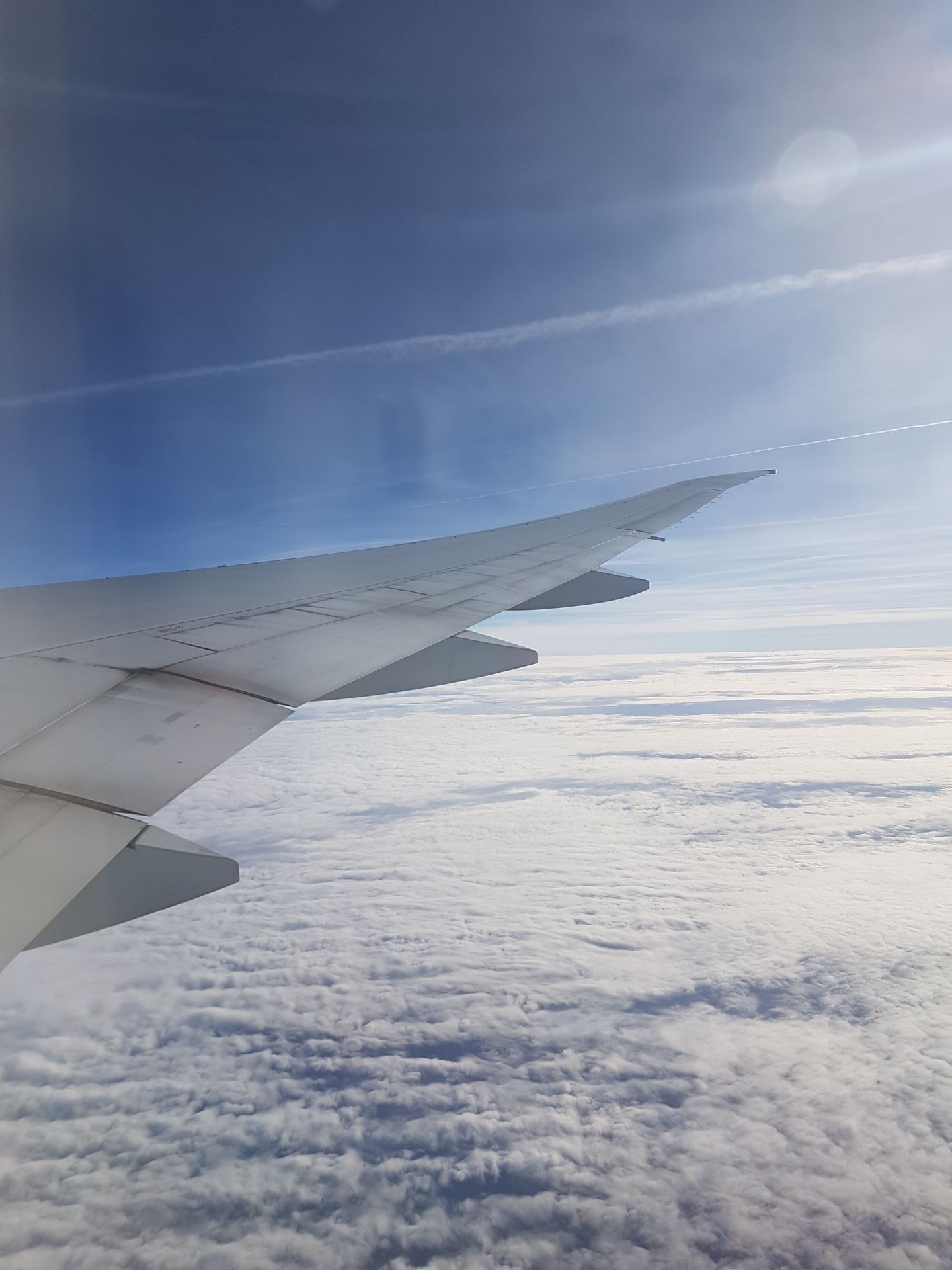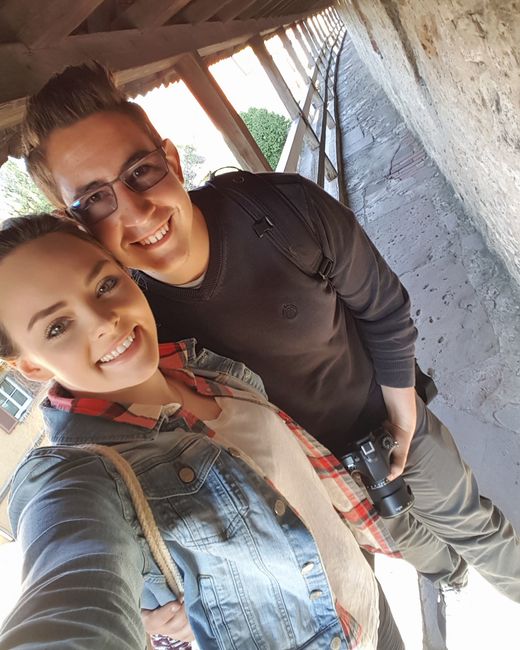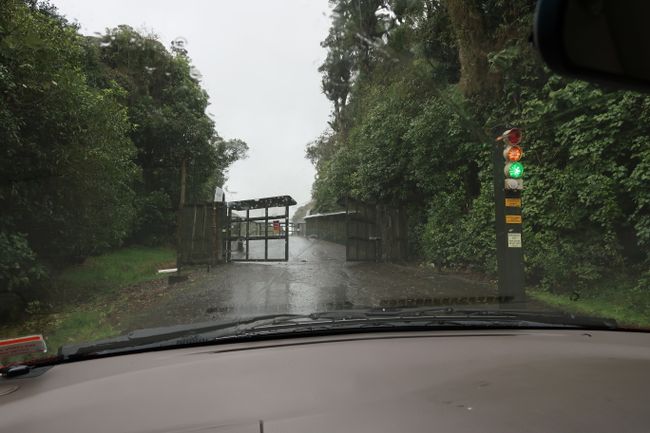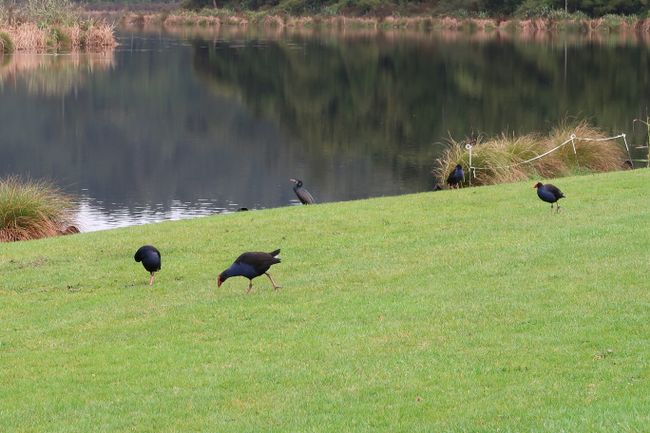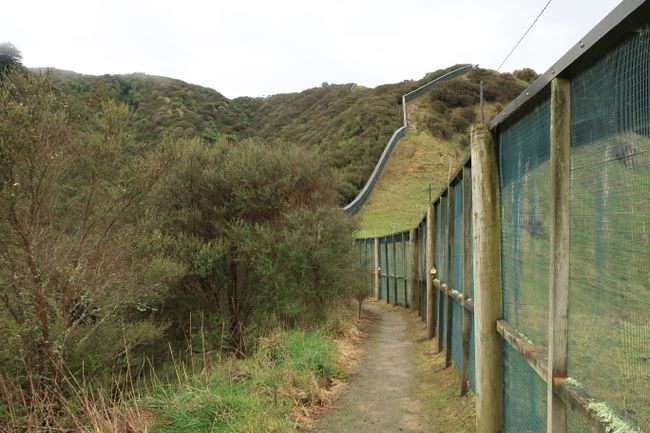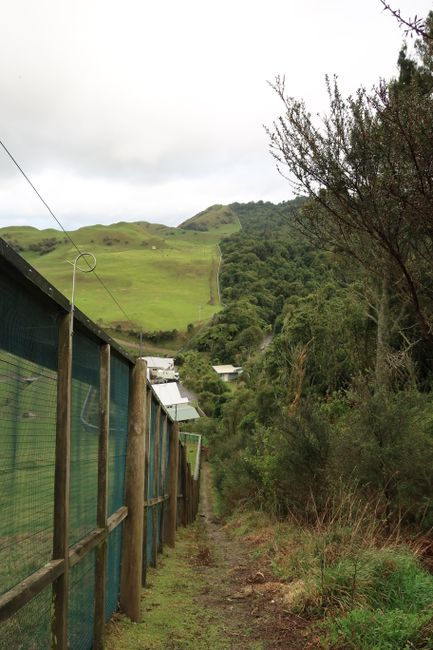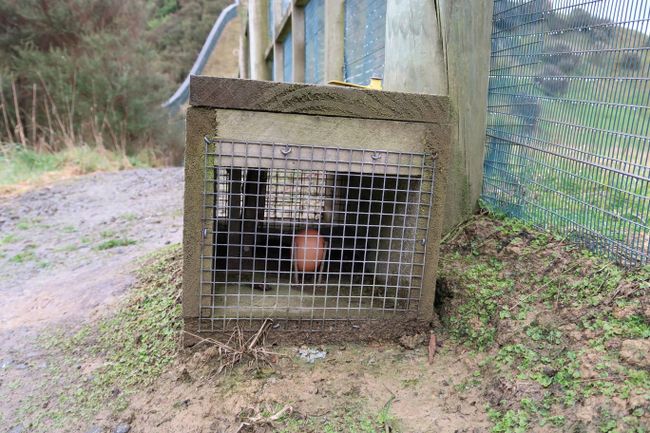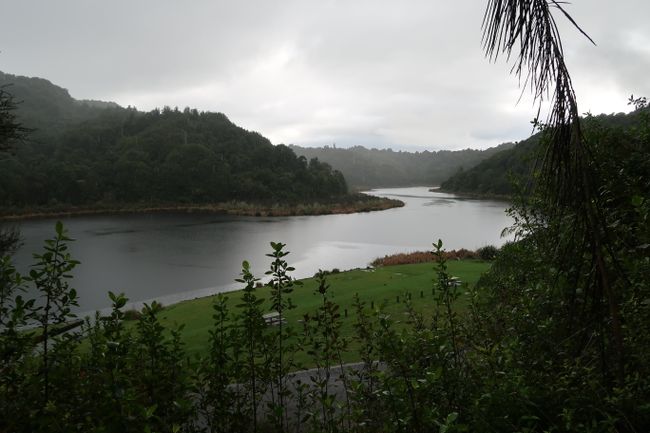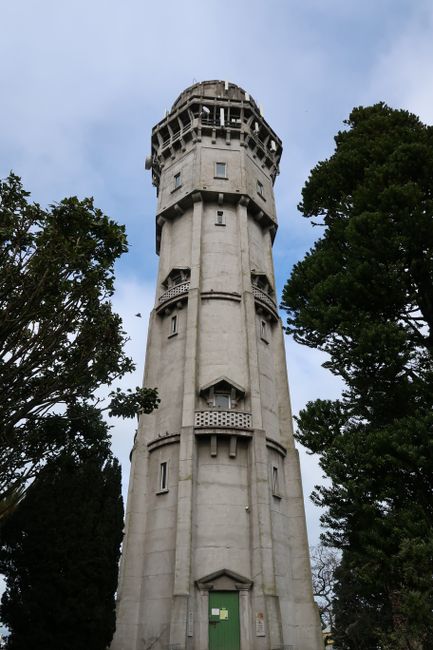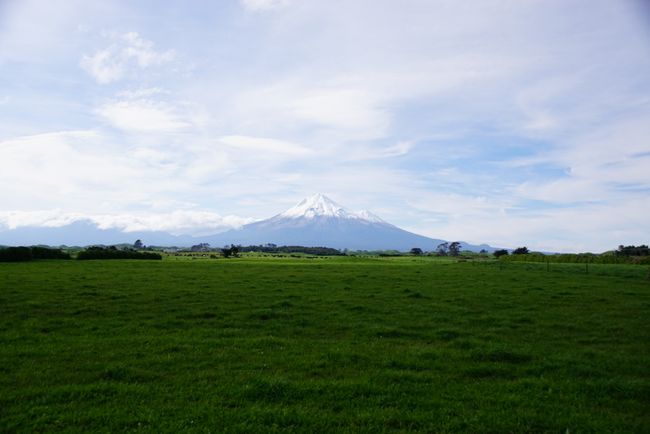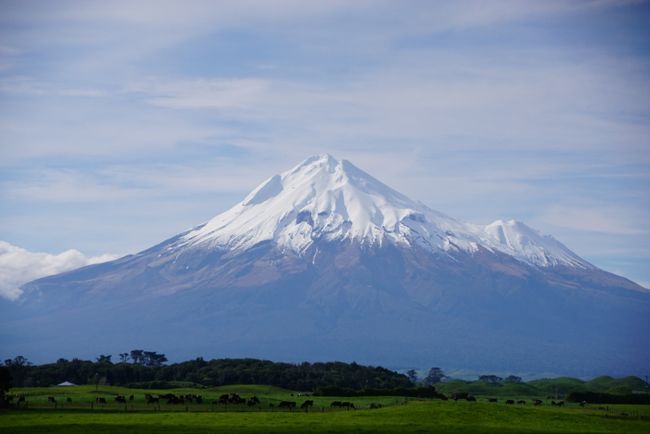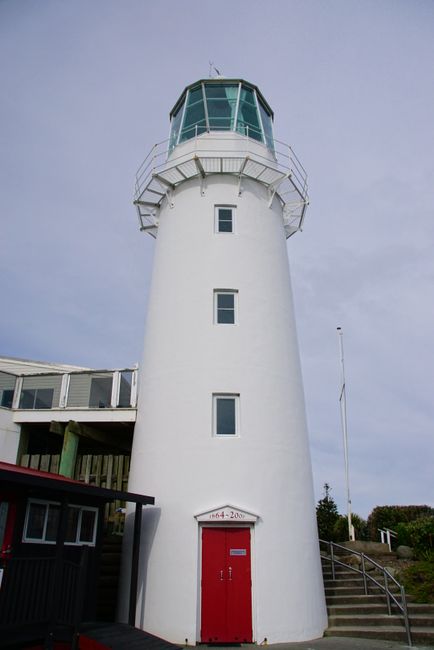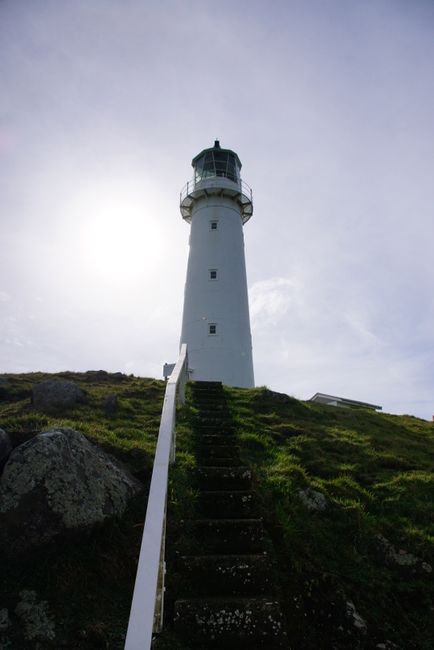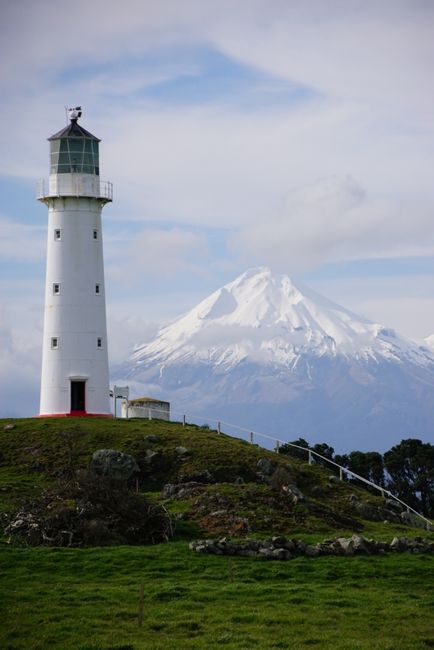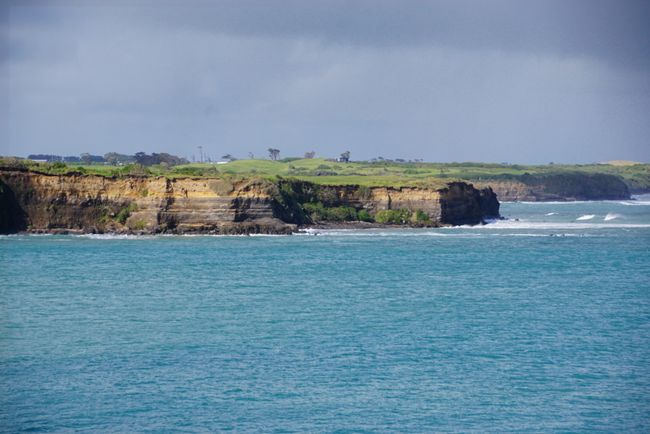15/08/2018 - Stayed at the Bird Reserve
Argitaratu: 19.09.2018
Harpidetu Buletinera
Two days ago, we left the northern area of the Taranaki District and continued our journey. The road took us down the so-called Surf Highway 45 along the west coast. To not just rush past the scenery, we took our time and made several stops along the way. Throughout the entire drive, we kept the photogenic volcano to our left. The west side of Mount Taranaki is also impressive. ;)
In addition to the many short photo stops along the roadside, we made our first major stop at Cape Egmont Lighthouse. First, we visited the replica of a historic version that once stood here on the coast. Inside this tower is a museum and a small souvenir shop, which were closed when we arrived. So, we didn't hesitate and continued to the original. It is located at the cape of the same name and has been warning approaching ships of the mainland since 1881. We parked the car, got out, and admired the lovely lighthouse with Mt Taranaki in the background. A great picture! - Although access was on private property, Tobi tried his luck and spoke to two workers who were doing small painting jobs on the tower. And indeed, they granted him entry. After taking some souvenir pictures, we continued our journey. On the first day of our road trip, we drove to Opunake. Here, we visited the library, bought some groceries for dinner, and stayed at a campground. Shelly, the owner, warmly welcomed us and provided us with a lot of information about nearby hikes. But when we told her about our recent excursions, she showed complete understanding and directed us to a small TV room where we could relax. :) - Not a bad idea. Our legs were still quite heavy...
Before we left Opunake the next day, we visited a centrally located lookout. The view of the steep coastline and the wide, blue sea was definitely impressive.
Shortly after leaving town, we passed the city limits sign and turned off SH 45. We drove on the straightest road we had ever seen into the interior. We didn't even have to use the brakes for a distance of nearly 40 kilometers. This is what we imagine the roads through Australia's Outback to be like. ;)
At noon, we reached Eltham. From here, we headed to the nearby Rotokare Scenic Reserve.
This nature reserve is something special. Created by volunteers, it provides a safe place for native bird species. A high fence, 8.2 kilometers long, was built around a lake in the middle of pastureland. In this secure environment, endangered bird species, such as the Kiwi, can grow and thrive undisturbed. Several security gates prevent predators like rats or possums from entering.
As we approached the entrance area, we felt like we were in Jurassic Park. We pressed a button and the first gate opened slowly. After we passed through it, we had to wait until it was completely closed. Only then could we press another button to drive through the next gate. The nature surrounding us was indescribable. Dense bush, lively bird songs, and absolute silence at the same time. We parked our car and soaked in the atmosphere.
To our delight, we were even allowed to stay here overnight! - Freedom camping in the reserve is allowed for a limited number of cars. - Even though our van was a bit sloping, we looked forward to the following night in the midst of New Zealand's bird diversity.
As expected in the bush, thick rain clouds appeared in the sky, and a warm dinner was in danger. So, we didn't waste much time and set up the camping stove to quickly cook something warm. It didn't take five minutes before we disappeared into the van with hot curry, and the world seemed to want to go under - lucky us!
After dinner, we made ourselves comfortable on the bed and watched the last part of 'The Adventures of Captain James Cook'. Then followed the short sprint to the sink to brush our teeth and a pitch-dark night. The rain seemed to never stop - and yet, we could hear another sound besides the loud pattering! Several times, we heard Kiwis calling - their shrill cry is unmistakable! We would have loved to go on a night walk. However, the rain didn't pause throughout the entire night. But just the thought of wild Kiwis rummaging around our van in close proximity was incredibly exciting.
Today, the world already looked better. The rain subsided, and we had breakfast overlooking Lake Rotokare. We were surrounded by many native birds like the Pukeko or the Magpie. The latter belongs to the genus of magpies. They were accordingly interested and lively.
Before we set off again, we wanted to take a closer look at the protective fence that borders this area. So, we went on a short hike to the nearby hill. It is shocking to see the measures that must be taken to protect native birds from extinction. - The great commitment of the volunteers who keep a place like this running is impressive and deserves the highest respect.
We really liked the atmosphere in the nature reserve - it was relaxed and magical at the same time. We took a last look at the lake. Then we crossed back through the security gates that led back into the loud and hectic world.
In the morning, we arrived in Hawera and parked the car. It was just a coincidence that we were right next to the city's top attraction. It is a 54m high water tower from 1914. However, it was never used as a drinking water reservoir but serves as an emergency store for the local fire department. And not without reason...
Hawera translates to "the burnt place" in Maori. In previous battles, Maori settlements were repeatedly set on fire here. Even in the 20th century, a large part of the main street unexpectedly burned down. Due to this, the aforementioned water tower was built a few years later to ensure safety.
Well, what does it say about a city when a water tower is its highlight? It is rather utilitarian. So, for us, there was no reason to stay here longer. After quickly getting a snack at the local bakery, we found ourselves back on the highway shortly afterwards. In 1.5 hours, we drove to Whanganui, which is 90 kilometers away.Harpidetu Buletinera
Erantzun (1)
Wolfgang
Wieder mal sehr schön geschrieben. Danke!
Bidaien txostenak Zelanda Berria
